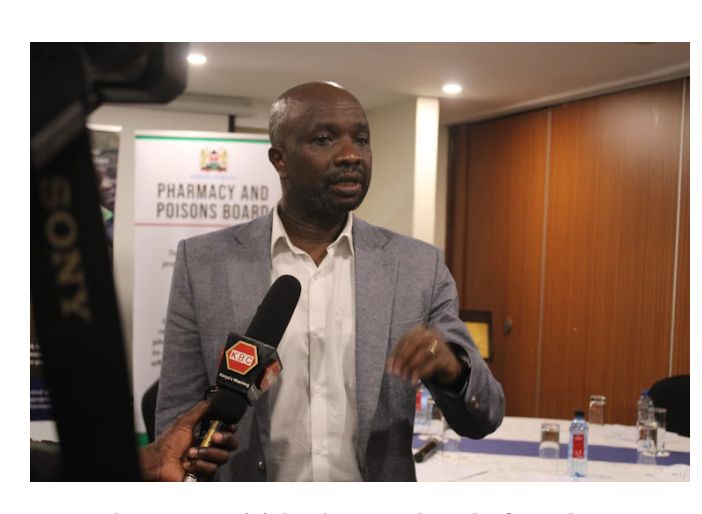
The Kenyan government has announced plans to conduct comprehensive testing of all children’s syrups in the country following the recent discovery of a contaminated batch containing a chemical commonly used in brake fluids. The Pharmacy and Poisons Board (PPB), the regulatory body for medicines, assured the public that these tests are precautionary in nature.
Dr. Anthony Toroitich, the PPB’s head of product safety, stated that the testing process will commence next week and last for a duration of two weeks. Samples will be collected from syrups currently in circulation and subjected to laboratory analysis to ensure their safety. Dr. Toroitich emphasized the PPB’s commitment to identifying and addressing the presence of poor-quality products.

Dr. Antony Toroitich, The PPB Head of Product Safety
The decision to conduct nationwide tests stems from increasing concerns regarding the safety and necessity of cough syrups. In a recent recall, 11,000 units of an imported cough syrup were found to contain alarmingly high levels of diethylene glycol, a chemical with antifreeze properties and serious health risks when ingested. Symptoms of diethylene glycol ingestion include abdominal pain, vomiting, diarrhea, altered mental state, and acute kidney injury.
Diethylene glycol should not be used in medications, but its low cost makes it an attractive option for some third-party manufacturers. Unfortunately, its usage has resulted in the deaths of numerous children in countries such as Gambia, Uzbekistan, and Cameroon since 2022.
The specific recall applied to Batch No 329304 of Benylin Pediatric 100ml, which was manufactured in May 2021 and was due to expire next month. However, the PPB is also testing an additional 44,000 units of Benylin Pediatric 100ml that are in the country but not from the recalled batch. Dr. Toroitich emphasized that there have been no other complaints regarding syrups in Kenya besides those associated with the recalled batch.
The PPB’s decision to conduct extensive testing follows the advice of the Nigerian food and drug agency, which prompted recalls in Nigeria, Rwanda, Kenya, and South Africa. The World Health Organization (WHO) has previously stressed the need for immediate action to protect children from contaminated medicines. It has called on governments and regulators to allocate resources for manufacturer inspections, enhance market surveillance, and take necessary actions.
The WHO suspects that propylene glycol, a legitimate chemical used in cough syrups, may have been adulterated with cheaper toxic alternatives like ethylene glycol and diethylene glycol due to price fluctuations. These toxic substances, commonly found in brake fluid and other non-consumable products, pose significant health risks when ingested.
It is important to note that since 2001, the WHO has discouraged the use of cough syrups in children under the age of five due to limited evidence of their effectiveness and potential side effects.
The Kenyan government decision to test all children’s syrups for toxins is a precautionary measure undertaken by the Pharmacy and Poisons Board. The aim is to ensure the safety of these medications following the discovery of a contaminated batch. The recall and subsequent testing align with global efforts to protect children from the risks associated with counterfeit or substandard medicines.




